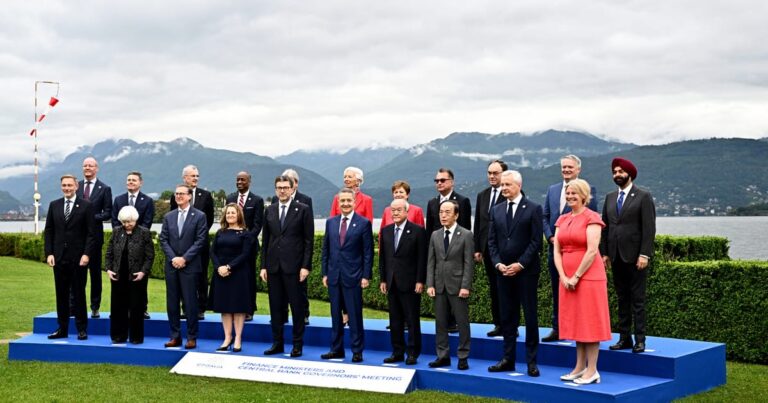Saturday’s statement said the G7 was “making progress” on a U.S.-led proposal to “front-load” future benefits on loaned assets, but countries including France and Germany fear their own taxpayers will be left footing the bill if Kiev is unable to repay the loans once the war is over.
“There are serious technical and legal problems,” said Italian Finance Minister Giancarlo Giorgetti, whose country holds the G7 presidency and chairs the meeting.
Russian state assets were frozen in Europe shortly after President Vladimir Putin’s invasion of Ukraine in February 2022. They have been invested and earning interest since then. After months of disagreement, the United States scaled back initial plans to seize the assets in their entirety, instead using the interest as collateral for loans.
The EU has a bigger stake because it holds most of Russia’s frozen assets, while U.S. banks hold only a tiny fraction of the funds.
“We still need to understand the various options,” German Finance Minister Christian Lindner said. “It is too early to be specific about some elements of such measures, as we need to assess the economic and legal implications.”
After months of disagreement, finance ministers gathered in Italy to try to find unity, but cracks emerged as EU countries gave the plan only lukewarm support.


